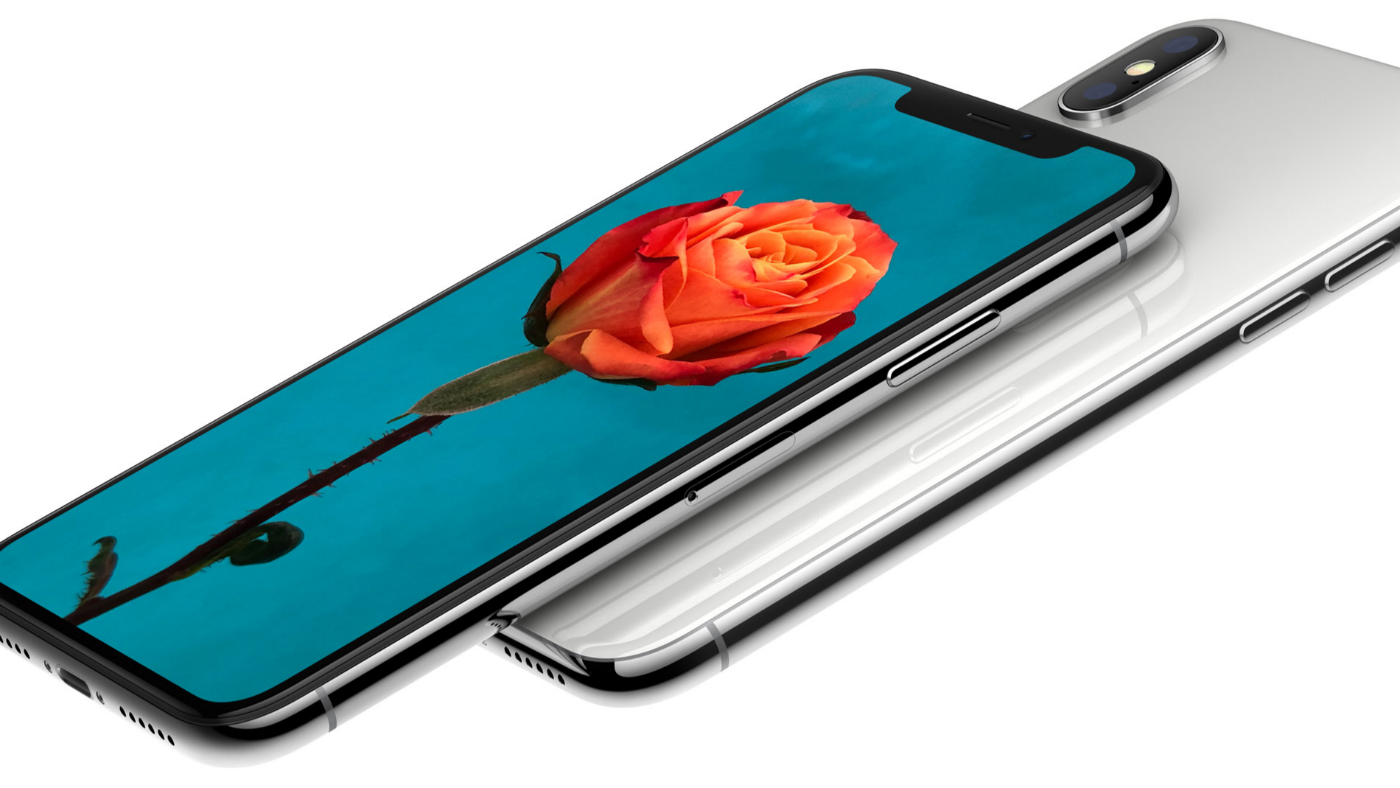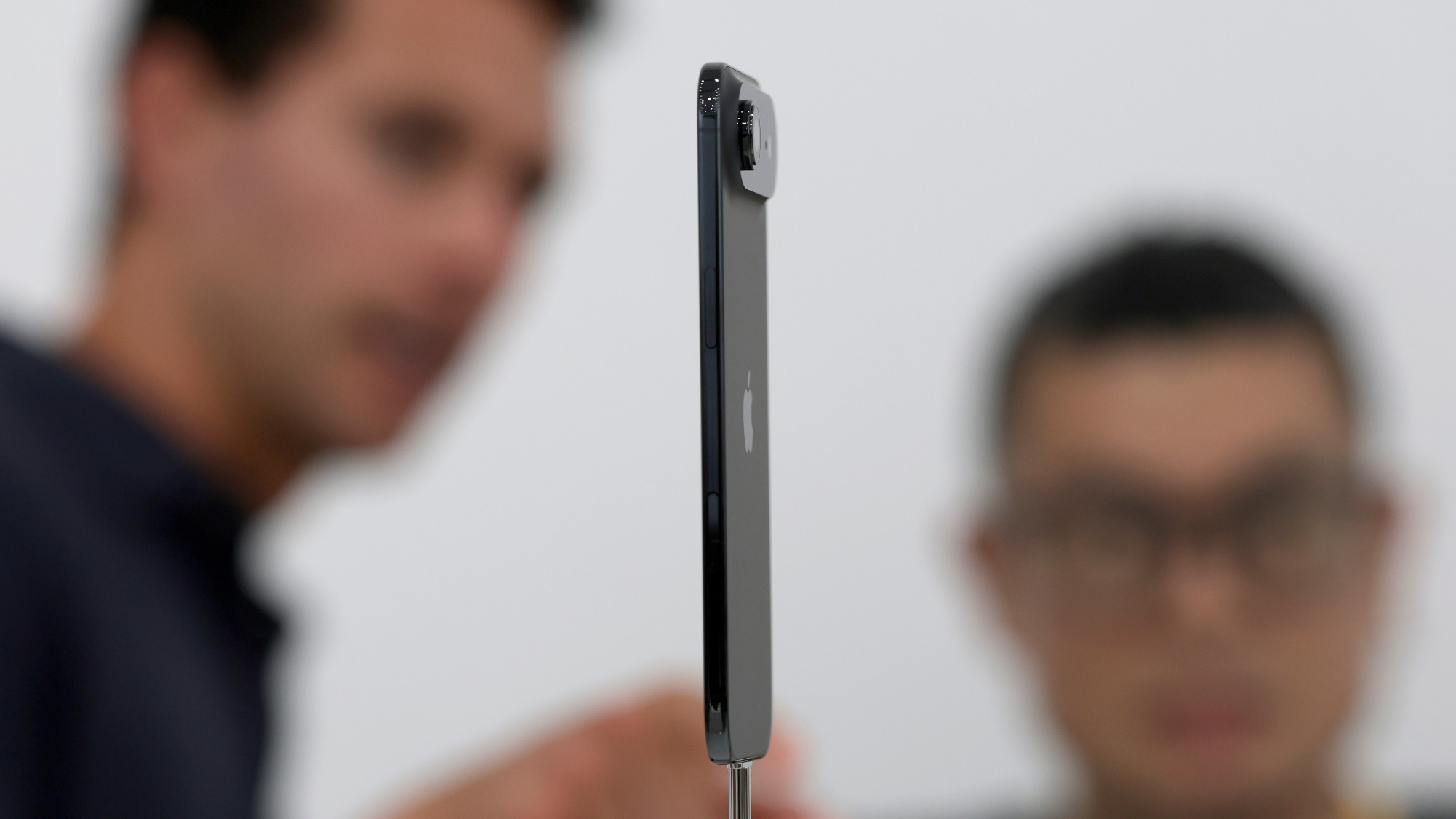Google Pixel 2 vs iPhone 8 and iPhone X: which comes out on top?
Google and Apple go head to head - and for the first time it looks like a real competition

A free daily email with the biggest news stories of the day – and the best features from TheWeek.com
You are now subscribed
Your newsletter sign-up was successful
Google’s latest smartphone has hit the shelves and it looks to be a direct competitor to Apple’s new iPhone 8 and iPhone X.
Here’s how the three compare and what the critics think:
Design
The Week
Escape your echo chamber. Get the facts behind the news, plus analysis from multiple perspectives.

Sign up for The Week's Free Newsletters
From our morning news briefing to a weekly Good News Newsletter, get the best of The Week delivered directly to your inbox.
From our morning news briefing to a weekly Good News Newsletter, get the best of The Week delivered directly to your inbox.
While the iPhone 8 is similar to Apple’s recent models, the 10th anniversary iPhone X marks a radical departure for the company. Gone is the home button as it also moves away from aluminium casing, replacing it with a glass front and back panels last seen on the iPhone 4.
By contrast, the Pixel 2, which comes in a regular 5-inch and larger 6-inch XL model and is available and in white, black, and blue, has an all-white aluminium body, an orange power button, a black glass stripe at the top and stereo speakers at the side. It is cleaner and slimmer than last year’s device with an edge-to-edge screen, which explains Google’s move to follow Apple and ditch the once ubiquitous headphone jack, “a divisive move that’s going to upset plenty of people”, says CNET.
It also boasts a squeezable body that can be used to summon Google Assistant, an always-on screen artificial intelligencer that can detect any song being played within earshot.
Displays
A free daily email with the biggest news stories of the day – and the best features from TheWeek.com
The Pixel 2 is fitted with a five-inch 1080p AMOLED (active-matrix organic light-emitting diode) similar to that of its predecessor, says Tech Radar. Like the iPhone 8, Google’s phone has thin bezels at the side of the display, with thicker boarders at the top and bottom.
However, Trusted Reviews argues “there isn’t a whole lot to get excited about” with the Pixel 2’s display because the panel itself has a “warm” look to it, meaning “whites will have a slightly orangey tinge”. There’s also no way of adjusting this in the settings menu.
Despite the standard iPhone 8 having the same 4.7ins LCD display as the iPhone 6, Tech Advisor says Apple has equipped “True Tone” technology on the new smartphone. This not only gives the panel a wider range of colours, it can “adjust the temperature of the screen based on the ambient lighting conditions”.
Meanwhile, the iPhone X has the highest quality display of the bunch – but it's also the most expensive smartphone out of the three.
It features a 5.8ins OLED display that packs 2,436 x 1,125 pixels, says 9to5 Mac, as well as HDR (high dynamic range) lighting effects that bolster contrast ratios for a more lifelike-looking image.
However, unlike the Pixel 2 and iPhone 8, the X comes with ultra-thin bezels and is free of any physical buttons on the front panel.
Cameras
This is a feature in which both Google and Apple have invested heavily. Despite having only have one camera, Google claim the Pixel 2 has the best picture quality of any smartphone on the market, “a significant improvement on the widely-acclaimed camera on last year’s Pixel”, says The Daily Telegraph.
Its 12-megapixel system, with an f/1.8 aperture and optical image stabilisation, mirrors that of the iPhone X and iPhone 8.
Citing excellent video performance, great colour and scene reproduction, incredibly fast and accurate autofocus the camera testing outfit DxOMark gave the Pixel 2 an aggregate score of 98, beating both the iPhone 8 and Galaxy Note 8, which were tied at 94.
While taking top honours in camera quality, the Pixel 2 also contains Google Lens software that allows users to search the real world using image recognition.
However, one area where the iPhone wins out is in augmented reality, which layers computer-generated graphics over real-life objects, and makes its debut in the 8 and the X. The feature allows users to apply virtual masks or face paints to their own face in photos and videos in real time using the device’s camera. Emojis can also be animated, and virtual objects added to videos of the real world - all in real time.
Sound
Another area where the Google has sought to out-do Apple is in sound. The move to ditch the headphone jack accompanied Google’s decision to launch its own AirPod competitor, the Pixel Buds.
According to TechCrunch, the company essentially created an opening in the market by dropping the jack, “and it was able to step right in with hardware that also helps make Google Assistant more ubiquitous, while turning Translate into a real world version of Douglas Adams’ Babelfish”.
By comparison, the new iPhone 8 and X come with stereo speakers that are 25% louder than those in iPhone 7.
Other features
Both phones are water resistant but while Google has gone for super-fast charging via a USB-C charging port, the new iPhones come with the option of wireless charging and longer battery life.
Some users may also be put off by the new iPhone’s Face ID facial recognition software that replaces the touchscreen entry system.
Software
The Pixel 2 is designed to showcase the best of Google’s Android Oreo software and offers a major upgrade from its first model.
The OLED displays can always be on, showing time and date and notifications while the new Pixel homescreen has been improved with the wide Google search bar moved to the bottom where it’s easier to reach. The top row of the homescreen now provides useful information about weather, traffic, your calendar “and of course, Google Assistant is still the star of the show”, says Wired.
The Pixel line-up is in part an effort to make sure consumers are always offered the latest version of Android and “the phones are guaranteed the latest release as soon as Google makes it available, for at least three years - unlike other brands”, says the BBC.
Price
While a significant mark up from its previous model, at £849 the Pixel 2 is still roughly £200 cheaper than the iPhone X, which is expected to retail in the UK at £1,149 for the range-topping 246GB version.
However, for those fans who wish to stick with Apple, prices for the iPhone 8 start at the more reasonable £699 for the 64GB model, rising to £849 for 246GB.
The iPhone 8 and Pixel 2 are available for order now while the iPhone X is set to go on sale in early November, just in time for the Christmas rush.
Verdict
Google’s latest offering is not a complete rethink but a refined, improved versions of last year’s original, adding a few features and removing a few as well.
However, “the selling points remain the same” says Wired: “Google’s betting that the latest and greatest in Android, an even better Assistant, and the best phone camera Mountain View can muster are enough to take on the best of 2017’s smartphone bunch”.
Yet despite receiving positive reviews “Google will need to up its game in marketing and manufacturing if it is to compete” says the BBC’s technology correspondent Rory Cellen-Jones adding: “It’s all very well building a smartphone that gets five star reviews, but if you can’t make enough to meet demand you aren’t going to get very far”.
In the end for many people it will come down to software preference as despite boasting improved features on the whole the new Pixel 2 is not significantly better to lure devoted Apple fans.
-
 ‘Restaurateurs have become millionaires’
‘Restaurateurs have become millionaires’Instant Opinion Opinion, comment and editorials of the day
-
 Earth is rapidly approaching a ‘hothouse’ trajectory of warming
Earth is rapidly approaching a ‘hothouse’ trajectory of warmingThe explainer It may become impossible to fix
-
 Health insurance: Premiums soar as ACA subsidies end
Health insurance: Premiums soar as ACA subsidies endFeature 1.4 million people have dropped coverage
-
 Will AI kill the smartphone?
Will AI kill the smartphone?In The Spotlight OpenAI and Meta want to unseat the ‘Lennon and McCartney’ of the gadget era
-
 Has Google burst the Nvidia bubble?
Has Google burst the Nvidia bubble?Today’s Big Question The world’s most valuable company faces a challenge from Google, as companies eye up ‘more specialised’ and ‘less power-hungry’ alternatives
-
 Is Apple’s Tim Cook about to retire?
Is Apple’s Tim Cook about to retire?Today's Big Question A departure could come early next year
-
 How the online world relies on AWS cloud servers
How the online world relies on AWS cloud serversThe Explainer Chaos caused by Monday’s online outage shows that ‘when AWS sneezes, half the internet catches the flu’
-
 iPhone Air: Thinness comes at a high price
iPhone Air: Thinness comes at a high priceFeature Apple’s new iPhone is its thinnest yet but is it worth the higher price and weaker battery life?
-
 Is the UK government getting too close to Big Tech?
Is the UK government getting too close to Big Tech?Today’s Big Question US-UK tech pact, supported by Nvidia and OpenAI, is part of Silicon Valley drive to ‘lock in’ American AI with US allies
-
 Google: A monopoly past its prime?
Google: A monopoly past its prime?Feature Google’s antitrust case ends with a slap on the wrist as courts struggle to keep up with the tech industry’s rapid changes
-
 South Korea's divide over allowing Google Maps
South Korea's divide over allowing Google MapsTalking Points The country is one of few modern democracies where the app doesn't work